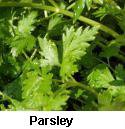Salt and You
A healthy body uses only the salt it needs and disposes of excess.
Salt is an extremely important nutrient for the body. It:
* helps keep the body fluids at their correct levels.
* helps cells to take up nutrients.
* helps to digest foods and turn them into living tissues.
* plays an important part in the transmission of electrical impulses in the nerves.
Low on Salt?
Salt is vital for our health. Without enough of it, muscles won't contract, blood won't circulate, food won't digest, and the heart won't beat.
Symptons of salt deficiency are weariness, lassitude, dizziness, heat cramps and sometimes prostration.
Too much of Salt?
Eating too much salt, can raise your blood pressure, which could further risk of developing heart disease, stroke.
High salt intake could result in greater retention of water in the body, which leads to swelling of the ankles. Too much salt also worsens thinning of the bones (osteoporosis), asthma and kidney disease and is also closely related to cancer of the stomach.
It's best to consult a physician on the right level of salt consumption.





